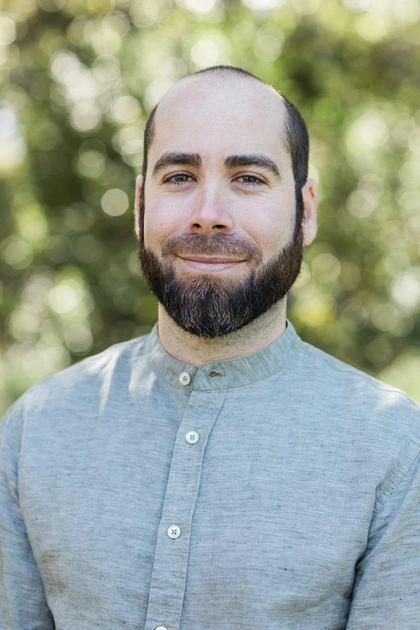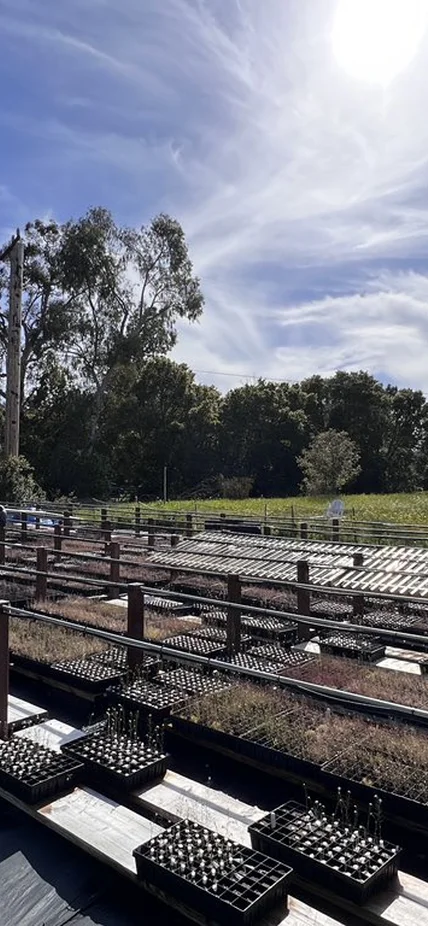
Palo Alto, CA— Carnegie’s Moises Exposito-Alonso will conclude his Staff Associate appointment next January, joining University of California Berkeley as an assistant professor of global change biology and member of the Innovative Genomics Institute.
Carnegie’s prestigious Staff Associate positions recognize early career excellence, bringing recent Ph.D. graduates who show exceptional promise to the organization for short-term appointments.
“The stars-in-the-making who are chosen for this program are given the opportunities to skip the traditional postdoctoral experience and run their own labs with teams of staff, graduate students, and postdocs—accelerating their abilities to make decisive impacts on their chosen fields of research,” said Carnegie Deputy for Science John Mulchaey. “Moi is exactly the kind of scientist Carnegie seeks out for our Staff Associate roster, and his achievement is a demonstration of the program’s success.”
Established at Carnegie by the late Don Brown, a pioneer in the field of molecular biology and highly regarded mentor of young researchers, the Staff Associate program was designed to encourage early career scientists to take up the kind of bold, creative research pursuits laid out in Carnegie’s founding mission. This initiative inspired other institutions around the country to establish similar positions and the National Institutes of Health to create an award to support these efforts, which many Carnegie Staff Associates, including Exposito-Alonso have won.
Previous Staff Associates have gone on to faculty positions at Duke University, Princeton University, the University of Chicago’s Marine Biological Laboratory, Tulane University’s School of Medicine, and more.
An evolutionary ecologist and geneticist who specializes in understanding the molecular processes driving plant species to adapt or go extinct in a changing climate, Exposito-Alonso started as a Carnegie Staff Associate in the fall of 2019 and almost immediately began receiving national and international acclaim. His contributions to plant research, ecology, and conservation resulted in his selection for the 2020 Forbes “30 Under 30” list in science and healthcare and, earlier this year, the inaugural class of Howard Hughes Medical Institute Freeman Hrabowski Scholars.
Working with model plant species, Exposito-Alonso's lab integrates long-term evolutionary experiments occurring at fieldwork sites worldwide with molecular biology and genomics in order to explore the gene pathways underlying plant climate adaptation, and the speed and predictability of rapid evolution. By employing biodiversity models informed by genomics, his team’s research is unveiling the impact of climate and land transformations on species evolution and the loss of genetic diversity globally.
Exposito-Alonso’s other recognitions include the National Institutes of Health Director’s Early Independence Award, the New Phytologist Tansley Medal, the Max Planck Society’s Otto Hahn Medal for early career excellence, the American Society of Plant Biologists' Early Career award, and the American Society of Naturalists’ Jasper Loftus-Hills Young Investigator Award.
“Congratulations to Moi on this new position,” said Stephanie Hampton, Deputy Director of Carnegie’s Biosphere Sciences and Engineering Division. “During his time as a Staff Associate, Moi has traversed disciplinary boundaries to develop new fields of inquiry. We are all eager to see how he continues to grow as a scientist in his role at Berkeley and to continue collaborating with him and his team on exciting genomes-to-ecosystems research.”
